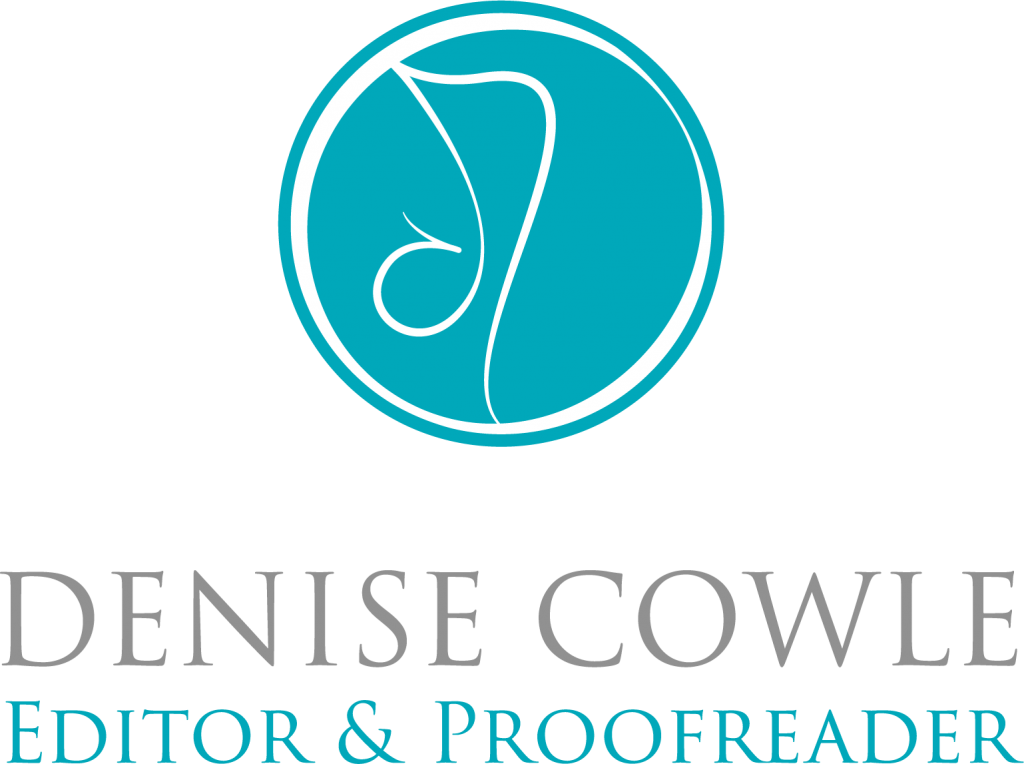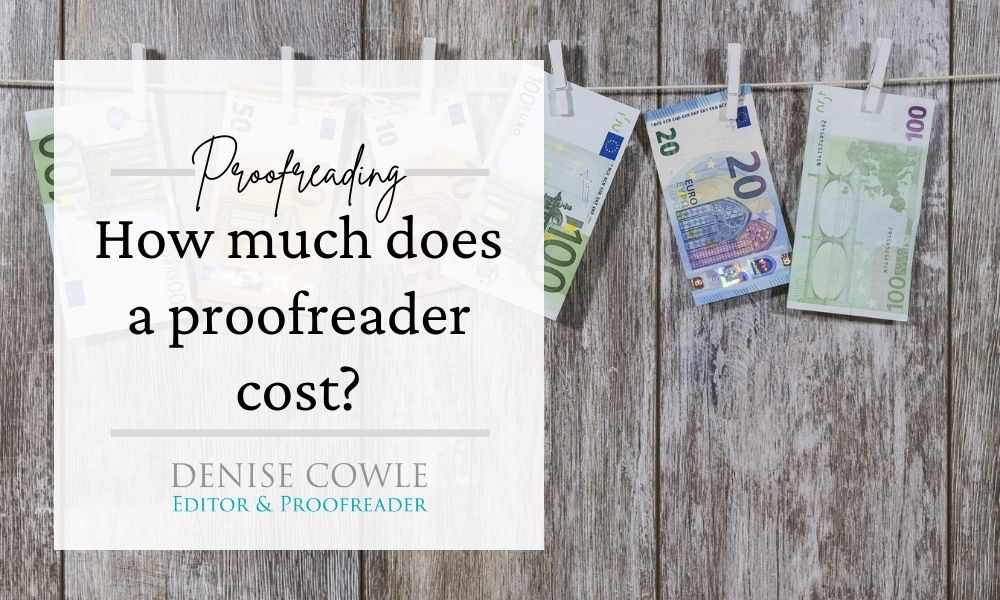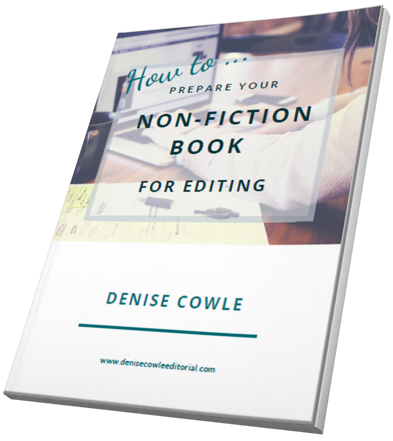How much does a proofreader cost?It probably won’t surprise you much to hear me say …
It depends. There are so many variables to take into consideration that it’s unlikely that anyone will give you a firm price straight off the bat, without asking you several follow-up questions.
How much will it cost to proofread my writing?Here are the questions you’ll need to answer before you can expect a firm quote:
Let’s have a look at why each of these factors has a bearing on the price you’ll pay.
What level of editing do you need?This is a big consideration, and you will have to discuss this with your editor. While developmental editing, copy-editing and proofreading are defined steps in the traditional publishing process, if you are a self-publisher, business owner or large organisation which produces content, you may need help deciding what level of intervention you need.
For example, it’s very common for me to be approached for proofreading, but when I have a chat about how the document had been put together and then look at the material itself, it’s often clear that the writing would benefit from copy-editing. If you’re not sure about the difference between the two, have a look at my blog post, ‘Do I need a proofreader or a copy-editor?‘.
This is particularly true when there are multiple contributors to the document, for example from different departments for a company’s annual report, or when different members of staff write blog posts.In this case your editor will need to bring together the writing to ensure a coherent, consistent tone of voice and standardise a style of usage across the board.
Can I see a sample of your work?In order to give you an accurate quote, your editor will ask to see the material, or at least a representative sample of it, so they can assess what is needed. This is even more necessary if English is not your first language.
Without an assessment of your work, your editor or proofreader can’t judge how much intervention it needs. This goes back to my point about clients often asking for a proofread where they would benefit much more from a copy-edit.
Your editor can then advise you whether, in fact, your writing is in good shape and simply needs a proofread to tidy up the punctuation, spelling and grammar, or whether it would be better to make deeper changes to word choice and sentence structure, and perhaps re-order your writing to bring clarity and consistency.
How long is your text?An editor will usually use the number of words as a starting point, while others will go by the number of pages. It’s vital that you both have a clear definition of what a standard page is.
For example, it’s not unusual to have a page defined as being prepared using 12 point Times New Roman, double spaced with one inch margins. Don’t think you can get a better deal by cramming everything in single spaced 8 point font. We’re one step ahead of you there!
You may find that others will base a quote on an industry ‘standard’ of 250 words per page. So, in that case, a 10,000 word article would be calculated as being 40 pages long and a quote would be prepared on this basis. Many editors don’t use this definition, so make sure that it’s very clear in your discussions that you are both talking about the same thing.
Other editors will prefer to quote you a fixed fee for the project, or a day rate. They may use the above methods to help calculate that fee, but present you with a figure that will cover the project within a defined set of parameters, such as the maximum length of the text and the number of rounds of editing included.
What is your schedule? Do you have a fixed deadline?Editors are generally busy. They may be able to fit in short projects with little notice, but bigger pieces of work will have been slotted into their schedules months ahead, so if you’re writing a novel, don’t wait until you’ve typed ‘The End’ before looking for the right editor for you.
And if you know you’ve got an annual report to be published on a fixed date, don’t decide the week before that you need an editor to whip it into shape – you could end up either paying a rush fee to get a good job done, or worse, going with whoever can take on the work, and they won’t necessarily be the best-qualified person for the job. Don’t risk getting a substandard result.
If you need work to be completed urgently, and it involves your editor working outside of normal office hours – in the evenings or over a weekend – you can expect a premium of anything from 20% to 200% to be added. So it pays to be organised!
So what will an editor charge? Is there a recommended rate for editing?This really is hugely variable. Editors may charge by the word, the hour or the page, or negotiate a fixed fee. I have seen fees as low as £3 or £4 per thousand words, and know of editors commanding hourly rates in excess of £85. The Society for Editors and Proofreaders have suggested minimum rates, but these are only suggestions, and you may find that an experienced professional will charge more, particularly if their work is in a specialised field where their knowledge of a subject or their technical expertise is in demand.
On average, you can expect to pay between £20 and £35 per hour for proofreading or copy-editing, depending on the factors we’ve talked about.
Remember that, as with everything else, you get what you pay for.
How would you feel about a hairdresser who offered to do a really great job – for a fiver? Or an electrician wiring your house for £50?
You don’t just pay someone for the time it takes them to do something, you pay them for their skills and experience, and the value they bring.
You want to avoid being ripped off by someone who offers a lot but doesn’t deliver, who makes extravagant claims about providing perfection but on the other hand doesn’t provide you with evidence of their ability to do so.
If you’re not sure how to go about finding a reputable, experienced editor who will deliver an excellent job for a fair price, check out my posts How do I find a professionial proofreader? Part 1, which looks at where to look, and How do I find a professional proofreader? Part 2 which outlines what to look for in a professional proofreader.
When do I pay my editor?For a one-off job such as proofreading a dissertation or thesis be prepared to pay your editor in advance. This may be a deposit or the full amount.
For a very large job over several months, for example editing and updating website content through several iterations, you may be invoiced monthly.
If your job is small, for example proofreading a blog post, it may attract a minimum fee (for example, mine is £40). If you know you’re going to produce this type of work on a regular basis it may be more cost-effective for you to negotiate a rate for regular work on a weekly or monthly basis.
I hope this has been useful to you. If you have any questions or comments about the cost of editing and proofreading, I’d love to hear them. Pop them in the comments below – I always reply!
|

How we’re ramping up The Editing Podcast
The Editing Podcast has had a revamp for 2022! Find out more about the new broadcast schedule for The Editing Podcast and how you can





